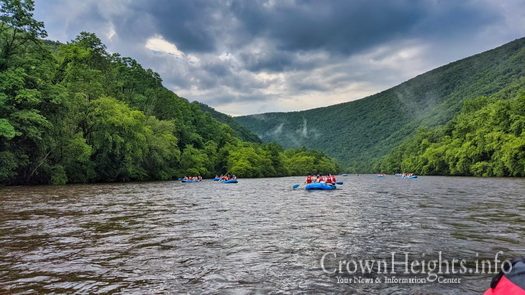
The Making of Camp Hikon
by Naftali Schwartz
I spent a good chunk of my career getting educated for and building stuff with hi-tech. After a midlife crisis, I eventually realized that what I really wanted to do is teach. I also soon realized that I wanted to teach something very specific: how to live the proper and serene life that Hahem wants for us all. As I delved more deeply into the natural ways of living, I also came to the realization that with all of the benefits we get from technology, we also pay a steep price. Looking back to my youth, I could see that while this Faustian bargain was somehow favorable in the past, those golden years of technology are long gone. Over the past decade I’ve found joy in gravitating towards a more natural way of living and eating, and separating myself from technology where reasonable. Over the course of my teaching career in the past decade, I’ve made a careful study of best teaching practices and I’m happy to report that this has yielded huge gains for both myself and my students. I’ve managed to achieve enough notoriety as a successful teacher that sometimes little boys I don’t even know will walk up to me and ask me to teach their class!
Transitioning from veteran teacher to Director of Camp Hikon was a natural next step. Most teachers in the Yeshiva system already understand the abundant contradictions between upholding Yeshiva policy and teaching the students something worthwhile in a way they can both enjoy and remember. Over time, this became especially difficult for me as I realized more and more how much best teaching practice diverges from typical Yeshiva policy. But if you open your own camp, suddenly everything is negotiable. You get to make sure your campers are finally eating the healthy food they so desperately need and not loading themselves up with anti-nutrients. You get to make sure they get enough sleep. You get to make sure they move enough, are exposed to nature enough, and are protected from the ills of screen time. You get to ensure their food, water and air are free of toxins. You get to ensure that skills are developed methodologically from the ground up. Looking back, it seems like such a no-brainer that I’m actually shocked I never thought of this before.
But Camp Hikon is actually much more than all of that. It is also a place families can send their campers to, confident that we’ll do something to fill the wide gap left by a Yeshiva system focused on practically meaningless Regents examination scores. A place where campers can acquire the emotional maturity they need to navigate the complex challenges coming their way. A place where they can re-learn the social skills they’ll surely need going forward. A place where they’ll learn in a loving environment about certain threats they will be facing which their parents never had to. Many parents wonder aloud if their little one is ready to hear about these things and aren’t some things best left unsaid. There is some truth in this, but it must be realized that at some point the cost of hiding the danger starts to exceed the cost of revealing it. In very many instances, we’re already beyond that point.
The community response to the message of Camp Hikon has been extremely gratifying. From a modest idea to cater to local Yeshiva High School boys, the concept has blossomed into an institution which attracts both younger and older campers, boasts both bay and girl divisions, and is a magnet for campers coming from all manner of Torah institutions all around the country and beyond. We are culturally diverse, but we’re all Torah Jews striving to fulfill the exhortation of the Navi to prepare ourselves for the challenges and the travails awaiting us in the late pre-Messianic era.










